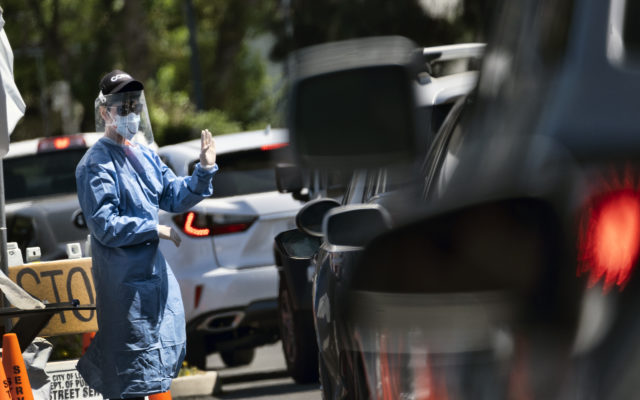
Maine expands testing to anyone suspected of having COVID-19
Click here for the latest coronavirus news, which the BDN has made free for the public. You can support our critical reporting on the coronavirus by purchasing a digital subscription or donating directly to the newsroom.
Maine reached a milestone in its pandemic response on Monday by opening up COVID-19 testing to a greater range of people.
In March, the Maine Center for Disease Control and Prevention prioritized tests at its laboratory for the most at-risk patients with symptoms. First priority went to people who were hospitalized, health care workers, first responders and people living in congregate settings such as nursing homes. Second priority went to people older than 60 and those with underlying medical conditions.
Maine is now rescinding those priority groups, the Maine CDC announced in an advisory to all health care providers. That’s because it has tripled testing capacity at the state Health and Environmental Testing Laboratory under a collaboration with IDEXX Laboratories that now allows it to process up to 1,000 tests each day. Hospital-based and commercial laboratories are able to perform even more tests.
Under the new guidelines, the state lab will now test specimens from anyone who has one or more symptoms that are consistent with COVID-19, in addition to people without symptoms who may be at risk for transmitting COVID-19 to others. A clinician must order the tests.
“Maine health care providers should use their clinical judgment to determine if a patient has signs and symptoms compatible with COVID-19 and whether the patient should be tested,” the advisory stated.
Symptoms may appear two to 14 days after exposure to the virus and may include: cough, shortness of breath or difficulty breathing, fever, chills, muscle pain, sore throat, new loss of taste or smell. Other less common symptoms, such as nausea, vomiting or diarrhea, have also been reported.
Examples of people without symptoms who may be at risk for transmitting COVID-19 to others include but are not limited to: asymptomatic close contacts of confirmed COVID-19 cases in an outbreak setting, asymptomatic health care workers who have had contact with a confirmed COVID-19 case, or those who volunteer for a sentinel disease surveillance plan under development by the Maine CDC.
The lab will not test specimens collected by congregate facilities that decide to test all their staff and residents unless that universal testing is approved by the Maine CDC, the advisory said.
The Maine CDC is also recommending that providers follow the Infectious Diseases Society of America’s guidelines on diagnosing COVID-19.
In summary, the organization recommends testing all symptomatic people suspected of having COVID-19. It recommends testing all asymptomatic people with known or suspected contact with a COVID-19 case. And it suggests testing asymptomatic people without a known exposure when the results will affect decisions around isolation, quarantine or personal protective equipment use; dictate eligibility for surgery; or inform administration of immunosuppressive therapy.
Ultimately, the decisions about which patients to test will depend on resources at specific institutions, the organization made up of infectious disease experts said.